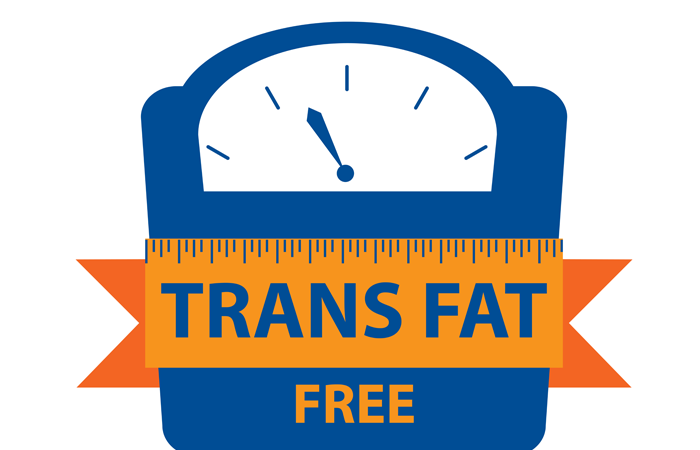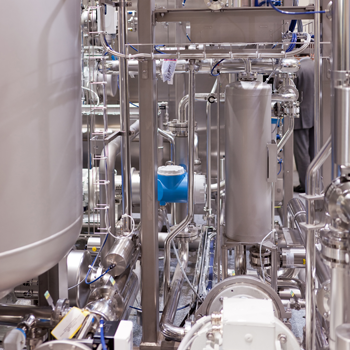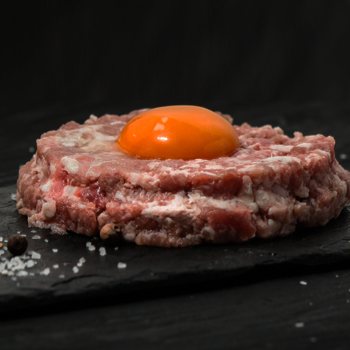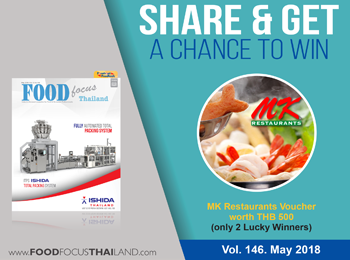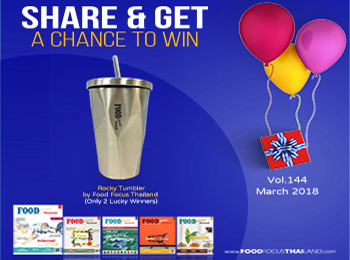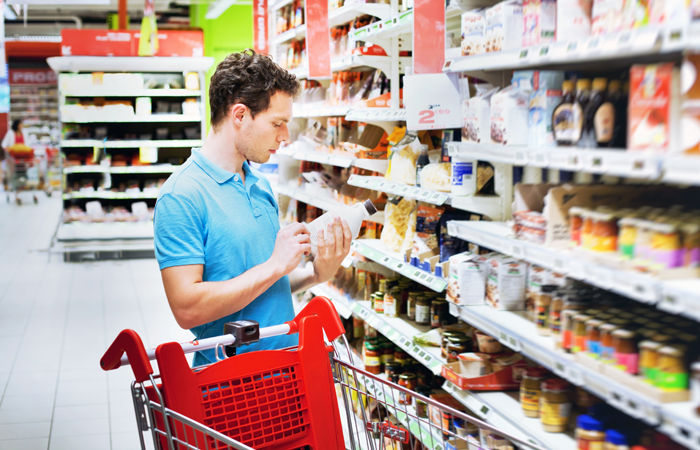ประเทศไทยปลอดไขมันทรานส์
สถาบันโภชนาการ มหาวิทยาลัยหิดล
Institute of Nutrition, Mahidol University
กรดไขมันทรานส์ (Trans fatty acids; TFA) เป็นกรดไขมันที่พบได้ทั้งในธรรมชาติและจากกระบวนการผลิตในอุตสาหกรรม ไขมันทรานส์จากธรรมชาติพบในผลิตภัณฑ์ที่มาจากสัตว์เคี้ยวเอื้องหรือสัตว์สี่กระเพาะ เช่น นม เนื้อสัตว์ (โดยเฉพาะเนื้อสัตว์ติดมัน) ซึ่งพบได้ในปริมาณที่ไม่สูงนัก ส่วนที่พบมาก ได้แก่ ไขมันทรานส์ที่ได้จากกระบวนการผลิตในอุตสาหกรรมที่มีการเติมไฮโดรเจนบางส่วน (Partially Hydrogenated Oils; PHOs) ลงไปในโมเลกุลของไขมันพืช ซึ่งกรดไขมันทรานส์ที่มาจากอาหารกลุ่มนี้มีส่วนในการก่อผลเสียต่อสุขภาพ โดยเฉพาะเป็นสาเหตุที่ทำให้เกิดโรคหัวใจและหลอดเลือด
สถาบันโภชนาการ มหาวิทยาลัยมหิดล โดยศาสตราจารย์ ดร.วิสิฐ จะวะสิต อาจารย์ประจำสถาบันโภชนาการ ในฐานะหัวหน้าโครงการวิจัยเรื่องประเทศไทยปลอดไขมันทรานส์และคณะ พบว่ามีไขมันทรานส์ปนเปื้อนในอาหารและส่วนประกอบบางชนิดที่ผลิตและนำเข้าในประเทศไทย ซึ่งจากการสุ่มตัวอย่างอาหารและผลิตภัณฑ์อาหารจำนวน 162 ตัวอย่าง พบว่าอาหารที่มีการปนเปื้อนไขมันทรานส์เป็นอันดับต้นๆ ได้แก่ 1) มาการีน 2) โดนัททอด 3) พาย 4) พัฟและเพสตรี 5) เวเฟอร์ช็อกโกแลต เป็นต้น
รองศาสตราจารย์ ดร.วันทนีย์ เกรียงสินยศ อาจารย์ประจำสถาบันโภชนาการ มหาวิทยาลัยมหิดล ได้ให้ข้อมูลว่า “การได้รับไขมันทรานส์แทนที่ไขมันชนิดอื่นๆ เพียงร้อยละ 1 ทำให้ระดับคอเลสเตอรอลไม่ดี (LDL-Cholesterol) เพิ่มขึ้น แต่ระดับคอเลสเตอรอลดี (HDL-Cholesterol) ลดลง จึงจัดว่ามีอันตรายต่อสุขภาพมาก องค์การอาหารและเกษตรแห่งสหประชาชาติ และองค์การอนามัยโลก แนะนำให้บริโภคไขมันทรานส์ได้ไม่เกินร้อยละ 1 ของพลังงานที่ได้รับทั้งหมด คิดเป็นไขมันทรานส์ไม่เกิน 2.2 กรัมต่อวัน หรือ ไม่เกิน 0.5 กรัมต่อหนึ่งหน่วยบริโภค”
นอกจากนี้ นางสาวมยุรี ดิษย์เมธาโรจน์ สำนักงานคณะกรรมการอาหารและยา กระทรวงสาธารณสุข ให้ข้อมูลว่า “เพื่อเป็นการคุ้มครองผู้บริโภค สำนักงานคณะกรรมการอาหารและยาจึงได้จัดทำร่างประกาศกระทรวงสาธารณสุขว่าด้วยเรื่อง กำหนดอาหารที่ห้ามผลิต นำเข้า หรือจำหน่าย กำหนดให้น้ำมันที่ผ่านกระบวนการเติมไฮโดรเจนบางส่วน หรืออาหารที่มีน้ำมันที่ผ่านกระบวนการเติมไฮโดรเจนบางส่วนเป็นส่วนประกอบ เป็นอาหารที่ห้ามผลิต นำเข้า หรือจำหน่าย โดยคาดว่าประกาศจะมีผลใช้บังคับประมาณปี 2562 ซึ่งผู้ผลิตและนำเข้าน้ำมันและไขมัน และผู้ผลิตและผู้นำเข้าผลิตภัณฑ์อาหาร น่าจะสามารถปรับปรุงสูตรได้ทัน เพราะปัจจุบันมีการพัฒนาเทคโนโลยีที่ใช้ทดแทนเทคนิคการเติมไฮโดรเจนบางส่วนในน้ำมันแล้ว เช่น การผสมน้ำมัน (Oil-Blending) ซึ่งเป็นวิธีที่ต้นทุนไม่สูง”
Trans fatty acids (TFA) can be naturally found and also produced from industrial processes. Natural trans-fat is found at small amounts in products from ruminants such as milk and meat (especially fatty meat). Meanwhile, the industrial trans-fat is generated during the partial hydrogenation process of vegetable oil or so called partially hydrogenated oils (PHOs). Trans fatty acids have become the hot issue due to their negative impacts on human’s health especially Coronary Heart Disease (CHD).
Professor Dr.Visith Chavasit from the Institute of Nutrition, Mahidol University and his research team on Thailand: Trans–fat Free Country Project, found that certain locally produced and imported foods and ingredients in Thailand were contaminated with trans-fat. From the 162 samples of foods and ingredients, the most common items that were contaminated with trans-fat were: 1) margarine 2) fried donut 3) pie 4) puff and pastry and 5) chocolate wafer. Therefore, excessive consumption of these foods could lead to health problems, especially cardiovascular diseases.
Associate Professor Dr.Wantanee Kriengsinyos, Institute of Nutrition, Mahidol University, revealed that obtaining trans-fat instead of other fatty acids only 1% of total energy increased bad (LDL) cholesterol, but decreased good (HDL) cholesterol, suggesting that high TFA intake is associated with negative health outcomes. Therefore, Food and Agricultural Organization of the United Nations (FAO) and the World Health Organization (WHO) recommend to consume trans–fat not more than 1% of total energy intake, or less than 2.2 grams per day or less than 0.5 grams per serving.
Moreover, Ms.Mayuree Ditmetharoj, Representative from Thailand’s Food and Drug Administration, Ministry of Public Health, mentioned that “In order to protect consumers, Thai FDA has drafted the Notification of MOPH entitled “Prescribed Prohibited Food to be Produced, Imported or Sold” to designate the PHOs and food containing PHOs as prohibited food to be produced, imported or sold. It is expected that the notification will be effective in 2019. Such period is considered to be appropriate enough for the producers and importers to reformulate their products. In fact, new technologies, such as oil-blending, are available for them to reformulate and develop their products.
